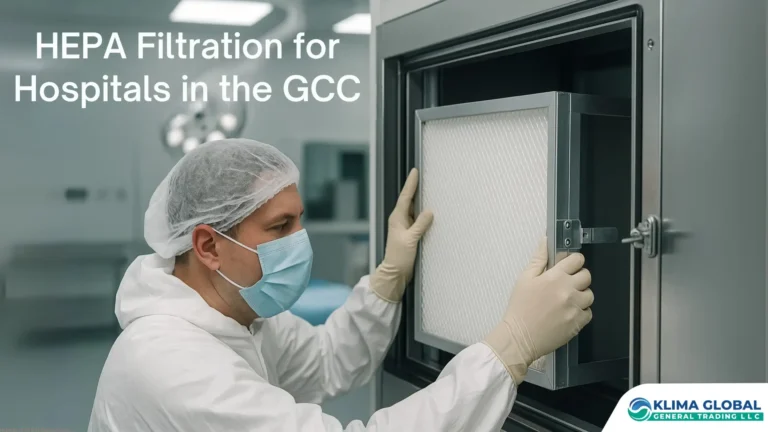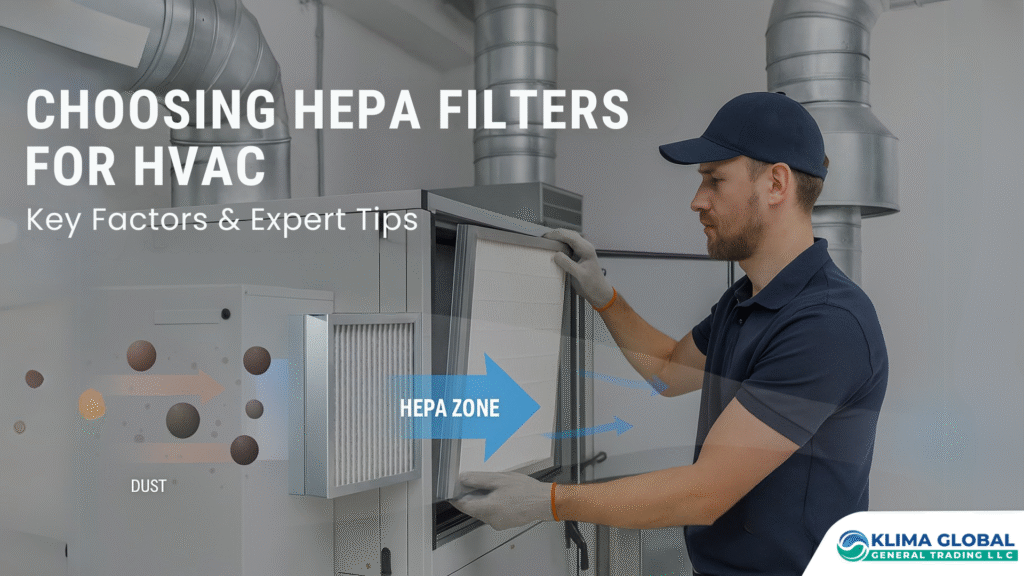

As indoor air quality (IAQ) becomes a critical concern across industries, HEPA filters are no longer optional in HVAC system design—they’re essential. Whether you’re managing a healthcare facility, cleanroom, or commercial property, choosing the right HVAC HEPA filter can drastically improve filtration performance, energy efficiency, and regulatory compliance.
This guide is tailored for HVAC consultants, facility managers, and procurement professionals seeking to make informed, technically sound filter choices.
Why HEPA Matters in HVAC Systems
Enhanced Indoor Air Quality
HEPA filters can capture 99.97% of airborne particles down to 0.3 microns, including allergens, pathogens, and fine dust. This significantly reduces respiratory risks and creates healthier environments.
Compliance and Standards
In many sectors, HEPA-grade filtration is required by law. Examples include:
- Healthcare facilities (ASHRAE 170)
- Pharmaceutical cleanrooms (ISO 14644)
- Food processing zones (HACCP)
Failing to meet these standards can result in penalties or failed inspections.
Efficiency & System Longevity
By capturing harmful particles early, HEPA filters also prevent buildup in HVAC coils and ducts—reducing wear and tear on equipment and improving energy efficiency.
For a complete understanding of how these filters function, read our How Do HEPA Filters Work? article.
Key Factors to Consider When Selecting HEPA Filters
Filter Efficiency Ratings
- HEPA vs MERV: HEPA filters are far superior to MERV 13–16 filters in trapping fine particles.
- The benchmark rating is 99.97% efficiency @ 0.3 microns.
- Higher efficiency is needed in cleanrooms and ICUs, while general office spaces may only need standard HEPA.
HVAC System Compatibility
- Every HEPA filter creates a pressure drop. Your HVAC system must have sufficient fan power to overcome it.
- Check compatibility with ductwork design, fan curve, and filter rack dimensions.
- Retrofitting existing systems? Refer to our Ultimate Guide to HEPA Filters for integration strategies.
Application-Specific Requirements
Each environment has unique filtration needs:
- Hospitals: Need HEPA with antimicrobial coatings
- Pharma/cleanrooms: Require ISO-compliant HEPA filters
- Offices/commercial HVACs: Prioritize airflow balance with filtration
- Industrial kitchens or harsh environments: May benefit from combination with Industrial Applications of HEPA filters
Lifespan and Maintenance
- Typical lifespan ranges from 6 to 12 months, depending on usage and environment.
- Watch for signs of clogging: increased static pressure, noise, or reduced airflow.
- Always follow a documented HEPA Filter Maintenance Checklist to optimize longevity and reduce downtime.
Cost vs Performance Trade-offs
While HEPA filters may seem expensive, they often result in long-term savings by:
- Improving energy efficiency
- Reducing equipment damage
- Avoiding regulatory fines
- Extending the life of downstream filters and system components
Pro Tips from HVAC Professionals
- Always combine HEPA filters with pre-filters to extend their lifespan.
- Use differential pressure sensors to monitor performance.
- Pair with Variable Air Volume (VAV) systems to manage airflow and reduce energy use.
- Validate filtration performance post-installation with aerosol testing or DOP testing.
Common Mistakes to Avoid
- Oversizing or undersizing the filter
- Ignoring the impact of static pressure
- Failing to verify HEPA filter class/certification
- Not maintaining a scheduled replacement plan
Avoiding these pitfalls is crucial to ensuring consistent IAQ and HVAC efficiency.
Klima Global’s HVAC HEPA Filter Solutions
Klima Global offers certified HEPA filters designed for high-performance HVAC systems across sectors:
- AHUs and rooftop units
- Cleanroom-grade filtration systems
- Commercial and healthcare HVAC retrofits
All our filters meet or exceed EN1822 and ASHRAE 52.2 standards. Download technical specifications or connect with an expert through our Contact Page.
Conclusion
Selecting the right HEPA filter for your HVAC system involves more than just checking specs—it requires understanding airflow mechanics, application needs, and maintenance protocols. With the right choice, you’ll enjoy superior air quality, lower energy costs, and a healthier indoor environment.
For further reading, visit our:
Explore Our HEPA Filter in Detail
Choose HEPA filters engineered for superior air quality, high-efficiency particle removal, and trusted performance in critical environments.
Explore HEPA Filter ProductShare this post
Related Posts


Ecology Unit Supplier in Saudi Arabia and UAE




HEPA vs. ULPA Filters: Which One Should You Choose?
Latest Posts


Ecology Unit Supplier in Saudi Arabia and UAE




HEPA vs. ULPA Filters: Which One Should You Choose?

One thought